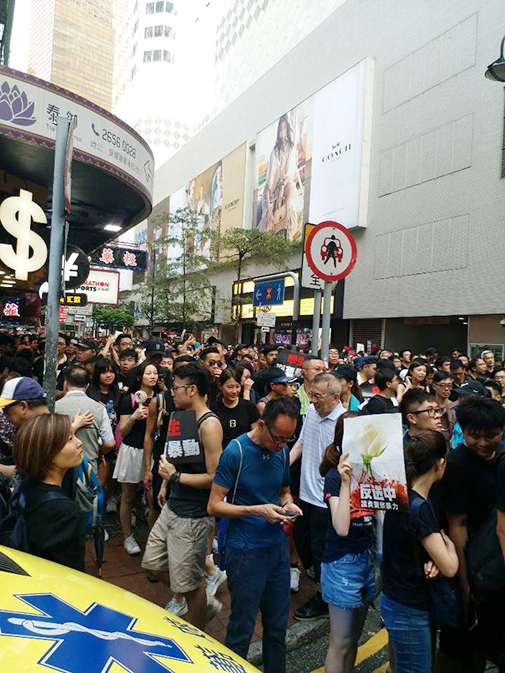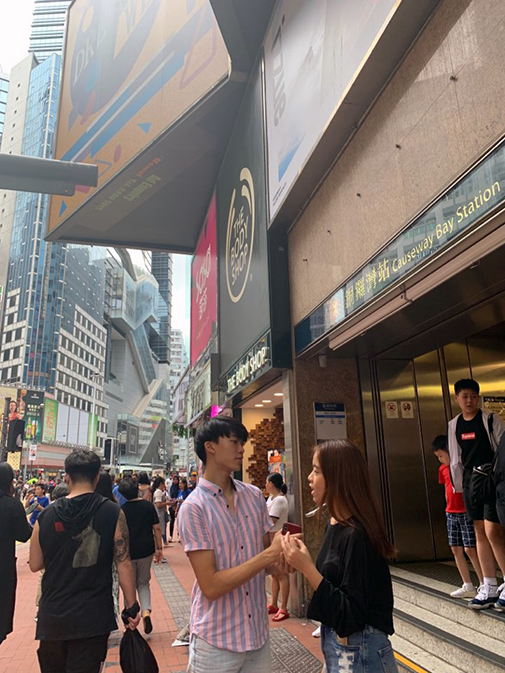
Beginning on 22 September 2014, students all over Hong Kong led a strike against the National People’s Congress’ decision that mandated pre-screening of candidates running for the chief-executive position. Participants occupied core office areas of Hong Kong, including Central and Tsim Sha Tsui, over two months, demanding full democracy. Five years have passed since then, and over a million citizens have spilled into the streets of Hong Kong turning main roads into a sea of umbrellas once again.
Back in 2014, the protestors wanted the right to directly nominate the head of the Hong Kong government, without any interference from the Communist Party. This time, they are marching to fight against an extradition bill proposed by the government of Hong Kong. If enacted, the bill would allow local authorities to extradite people who are wanted in territories that Hong Kong currently does not have extradition agreements with, namely mainland China, Taiwan, and Macau. Demonstrators fear that this bill would allow the Beijing government to unjustly bring in local citizens based on their political stances. Hong Kongers’ demand for full democracy is still on-going.
Rallies for pro-democracy movement continue, and demonstrators are occupying the streets with black umbrellas just as they did five years ago. Young protestors were not hard to spot, and many of them still have vivid memories of the Umbrella Revolution. “I was a freshman back in 2014. I came out to Central to take part in the movement after my classes, and today I’m taking part in the march again after work. It’s so unfortunate that the pro-democracy movement is still on-going until now,” stated Lilian Li, a local who said she’d recently started working in the banking industry.
“What is more devastating is that the suppression from the Beijing government is becoming fierce every moment. Last week, I witnessed numerous participants running down the subway in fear of the police armed with shields and batons. What shocked me even more was that the police started firing tear gases right into the protestors’ faces when none of them were armed,” she added in hopes of spreading the severity of the situation.
It was not only Lilian who felt that the movements have broken out into a violent one. Intensified use of force by the authorities in Hong Kong has been making top headlines on foreign media, while local demonstrators are trying to spread the news through SNS using Facebook, Whatsapp, Instagram and twitter.

Violent repression has received numerous criticisms from all over the world, and even the United Nations Human Rights Office has raised concerns over the escalating violence. Unfortunately, the demonstrators have been expressing their voices rather harshly as well. Anti-government protestors occupied the airport’s terminals for two consecutive days since last Monday, with the aim of immobilizing Hong Kong’s crucial economic asset with global significance. When protestors blocked both departures and arrival terminals, hundreds of flights were cancelled, and numerous innocent travelers from all over the world complained of long delays and inconvenience.
For many locals and foreign neighbors, the growing violence in Hong Kong protests brings back the painful memory of the bloody suppression of the Tiananmen uprising. “I don’t think this movement will pressure the Beijing government in any way. Think about the Tiananmen incident. Chinese army brutally suppressed the uprising without hesitation. I’m afraid the same thing is going to happen here in Hong Kong, especially when I see police beating up people and firing tear gases every day,” reflected a 72-year-old man who wished to remain anonymous after the vicious protest settled down a little.
Most of the younger generations, however, seemed to view this situation differently.
“I don’t think the Beijing government can take such extreme measures this time. Hong Kong is a global financial hub with developed media and social network services. And, we now have global attention and support on this matter. I’ve been seeing lots of foreign reporters over the past few weeks now,” stated Cherry Lin, a college student who has been actively participating in the movement since early July.
The on-going pro-democracy movement is a matter at stake for both the government and the people. If the Hong Kong government and mainland China wish to enact the bill based upon their stated aim of global fight against crime, they should do so in a non-violent manner and without infringing upon the fundamental rights of Hong Kongers. For demonstrators, it is also crucial to raise their voices through peaceful means for their fundamental aim is to preserve democracy in Hong Kong.

Chun Hei Chen
Senior (Grade 12)
American International School (Hong Kong)

